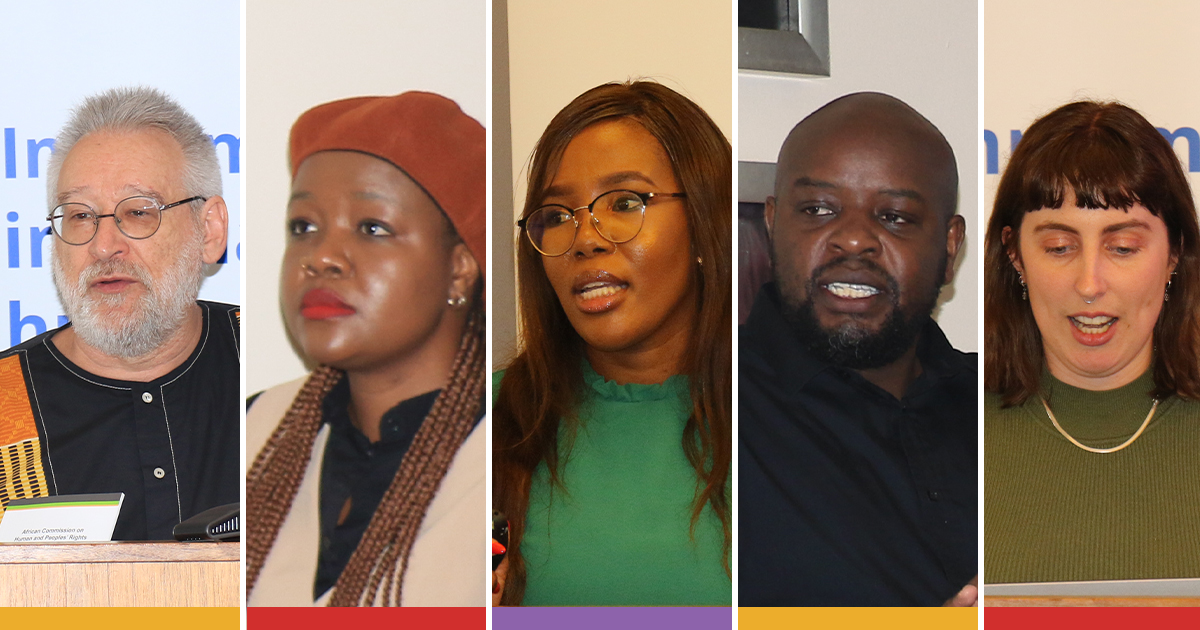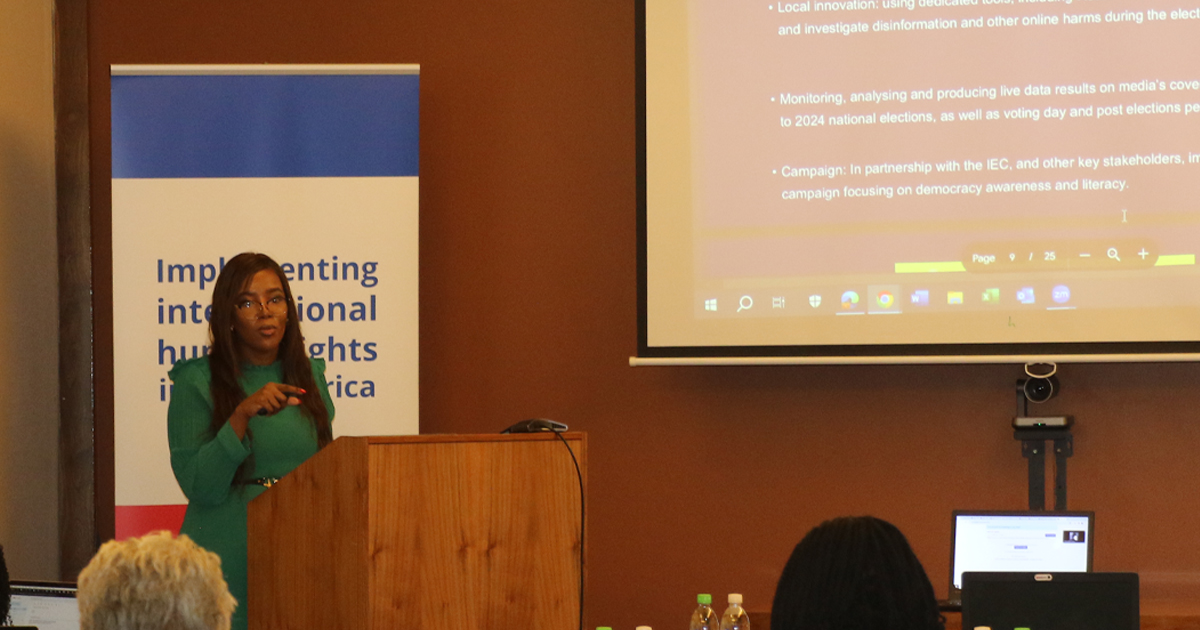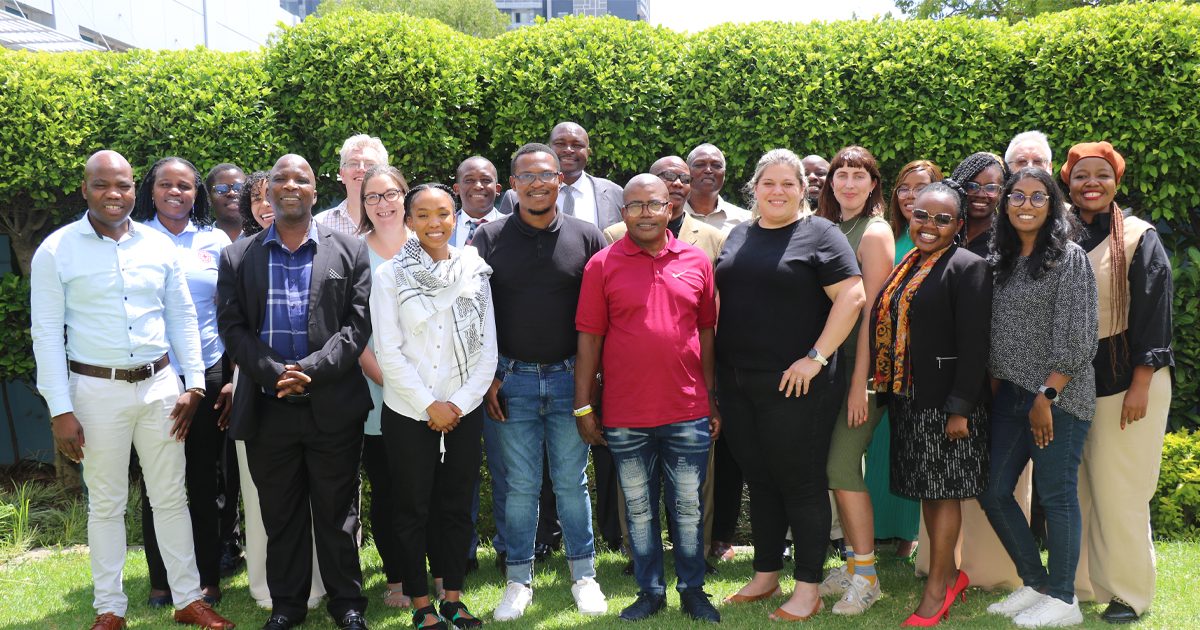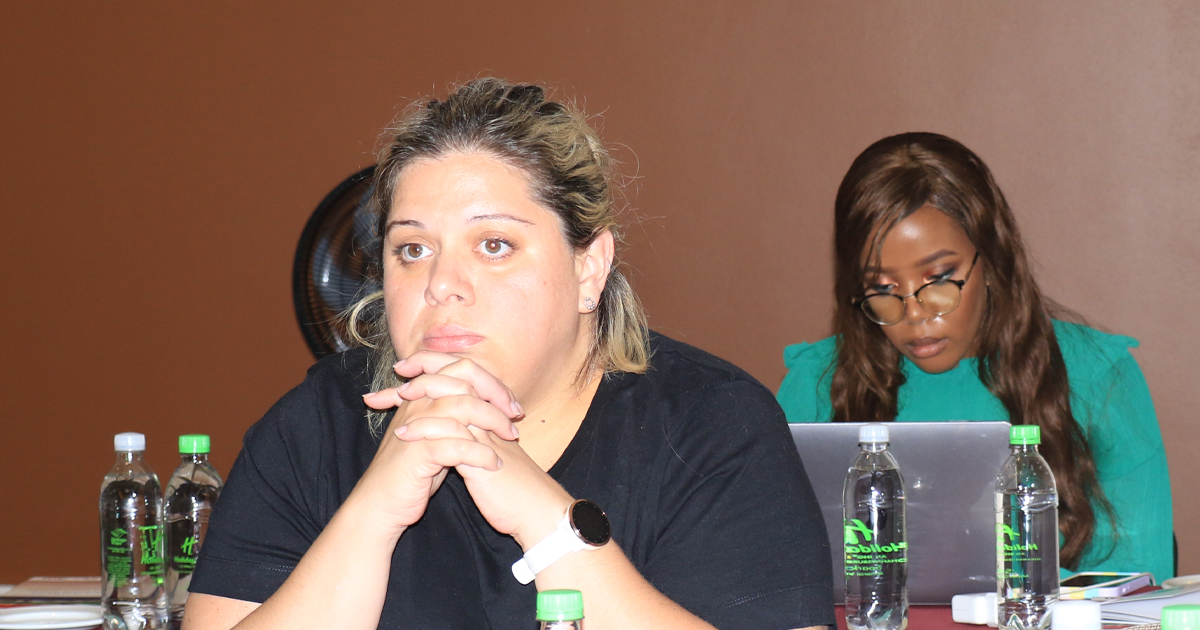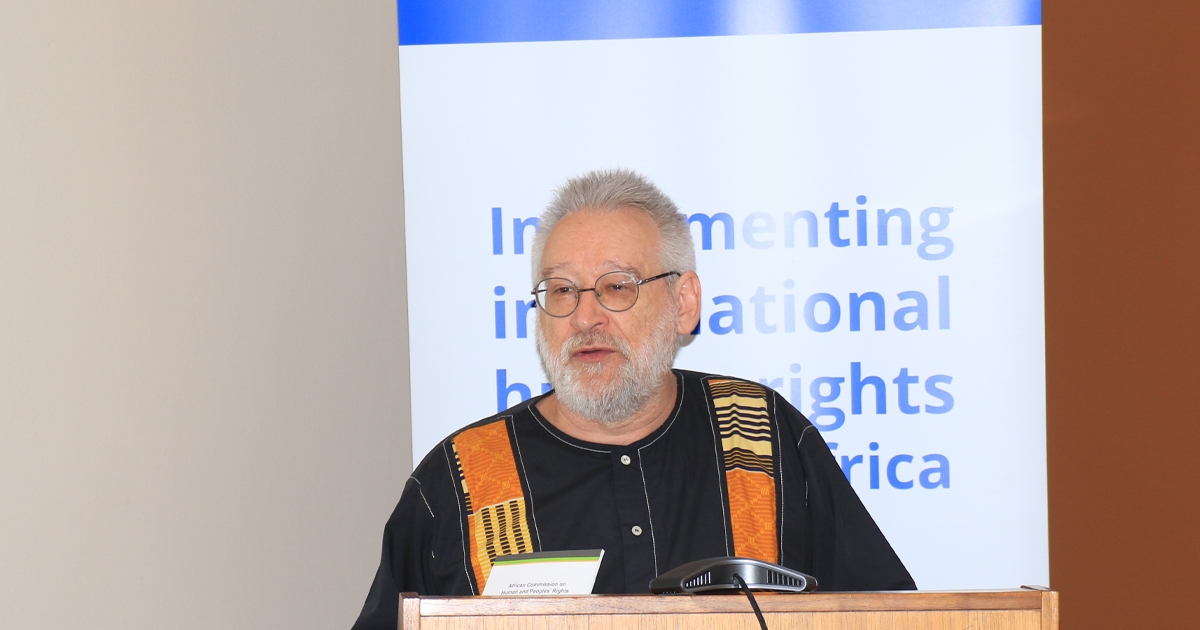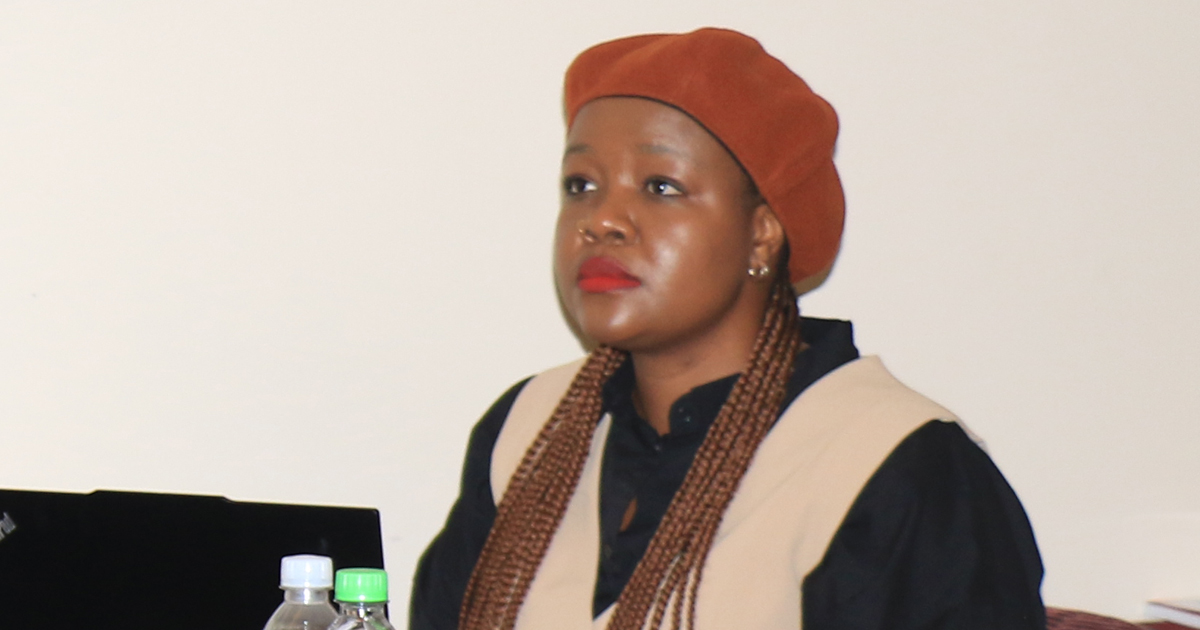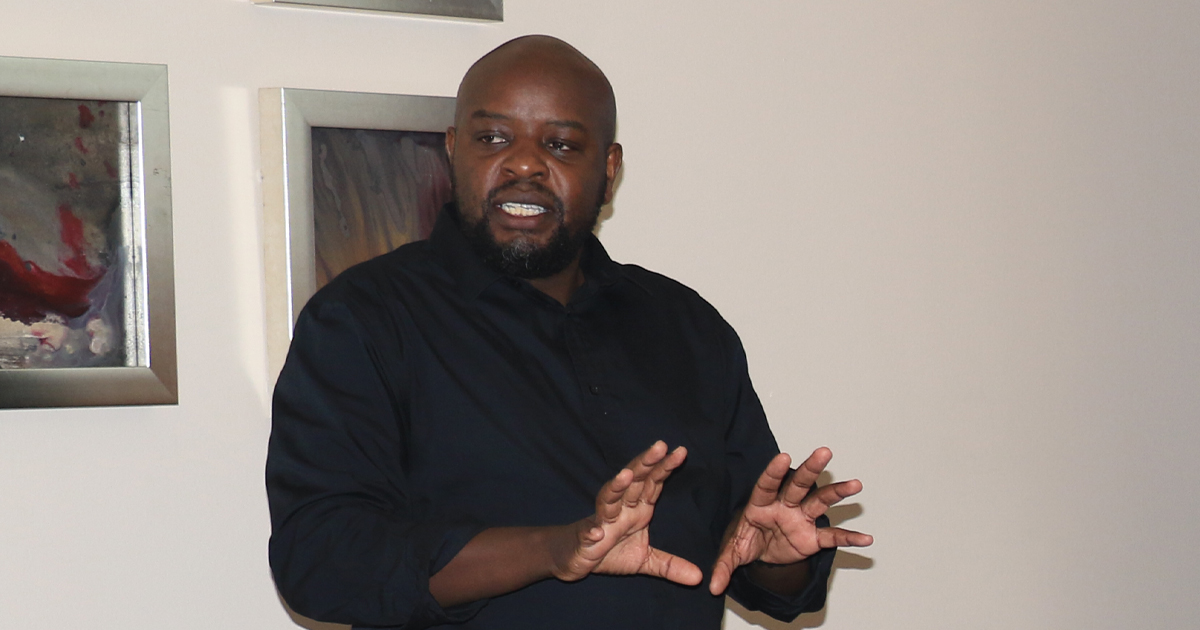On 13 February 2024, the Centre for Human Rights, Faculty of Law, University of Pretoria, in collaboration with the South African Human Rights Commission (SAHRC), the Independent Electoral Commission (IEC), the Information Regulator (IR), the Human Research Council (HSRC), Media Monitoring Africa (MMA) and the South African National Editors’ Forum (SANEF) convened an engagement with representatives from the media and civil society, focusing on the upcoming May 2024 South African elections. The purpose of the engagement was to deliberate and strategise on monitoring and reporting on the forthcoming elections, with a specific focus on the information ecosystem, electoral transparency, and integrity. This collaborative initiative underscores the shared commitment to fostering a transparent and informed democratic process in the upcoming electoral events.
This stakeholder engagement marks the culmination of an advocacy project dedicated to raising awareness on access to information in the context of elections. The core focus of this initiative has been the implementation of recommendations outlined in the report, Proactive Disclosure of Information and Elections in South Africa, a study commissioned by the Centre for Human Rights. The study is a comprehensive assessment of South Africa’s compliance with the African Commission on Human and Peoples' Rights Guidelines on Access to Information and Elections in Africa (the Guidelines) during the 2019 National and Provincial Elections. To complement the report, the Centre for Human Rights developed a factsheet on proactive disclosure of election-related information during the 2021 local government elections.
Stakeholders comprising representatives from civil society organisations, media houses, and government departments discussed the importance of implementing the Guidelines. They also deliberated on the significance of electoral transparency, meaningful participation, and accountability by the government and other relevant entities. Particular focus was dedicated to the pivotal role of the media in upholding the principles of free and fair elections. Media representatives shared insightful experiences in election coverage and highlighted the challenges associated with information dissemination. It was underscored that the instigation of violence by political parties and their supporters poses a significant threat to media freedom. Concerns were also expressed about the safety of female journalists covering elections. In that context, significant emphasis was placed on safeguarding media independence and upholding the ability to report objectively and impartially, without fear of retribution. As the impending 2024 elections approach, it is apparent that the media is ready to undertake comprehensive coverage.
Drawing from previous experience in the national, provincial, and local government elections, media reports highlighted the proliferation of misinformation and disinformation during the election period, mainly fueled by political parties and party supporters. The Information Regulator noted that political parties and candidates should desist from misleading the electorate through the dissemination of inaccurate information. In light of this challenge, the Information Regulator reiterated the necessity for strict compliance with the Promotion of Access to Information Act (PAIA) ensuring the timely and effective dissemination of accurate information held by political parties and independent candidates. This proactive approach is envisaged to enhance voter education and engagement. To curb adverse effects associated with mis-and disinformation, MMA and the IEC collaboratively developed the Real 411 platform. This innovative resource is strategically designed to mitigate the widespread dissemination of false information, aiming to cultivate a heightened level of awareness thereby fostering more informed public discourse.
In anticipation of the imminent challenges associated with transparency in the forthcoming elections, stakeholders have devised a range of tools aimed at ensuring and enhancing access to information, with the overarching goal of guaranteeing the fairness and freedom of the electoral process. Noteworthy among these tools are the MMA Political Party Advert Repository (PAdRe), Open Cities Lab MyCandidate, and SANEF elections portal. These instrumental resources are poised to play a pivotal role in enhancing public awareness and contributing to an informed electorate. AfricaCheck is dedicated to advancing the standards of election coverage through rigorous fact-checking initiatives. It is collaborating with local media and civil society organisations to counter misinformation during the 2024 electoral season in South Africa. The primary goal of these initiatives is to bolster the credibility of information disseminated during elections, fostering trust with audiences by delivering accurate and reliable data. For instance, the fact-checking initiative can elevate the overall quality of the election discourse, ensuring a more informed and engaged electorate.
The pivotal role of the media in public engagement and facilitating broader access to information underscores the imperative for collaboration among various stakeholders. It is important for other stakeholders to actively partner with the media, thereby guaranteeing the dissemination of credible information and ensuring a well-informed electorate. Such collaborative efforts contribute significantly to enhancing election integrity and transparency. This collaborative approach, as underscored by AfricaCheck during the convening, elevates the overall standard of election coverage but also cultivates trust with the audience. Consequently, it empowers voters with the requisite skills to discern false information, thereby fortifying the foundation of a well-informed and discerning electorate.
For more information, please contact:
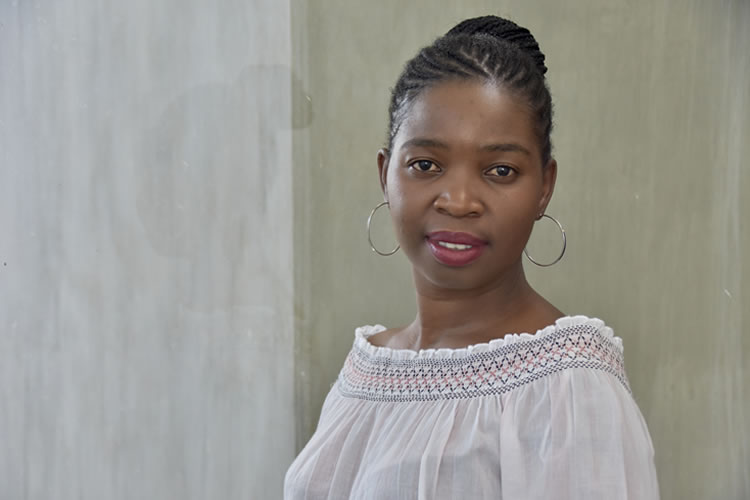
Expression, Information and Digital Rights Unit
Tel: +27 (0) 12 420 4199
Fax: +27 (0) 86 580 5743
hlengiwe.dube@up.ac.za

Expression, Information and Digital Rights Unit
Tel: +27 (0) 12 420 3810
Fax: +27 (0) 86 580 5743
Ompha.Tshamano@up.ac.za

Expression, Information and Digital Rights Unit
Tel: +27 (0) 12 420 3810
Fax: +27 (0) 86 580 5743
marystella.simiyu@up.ac.za

